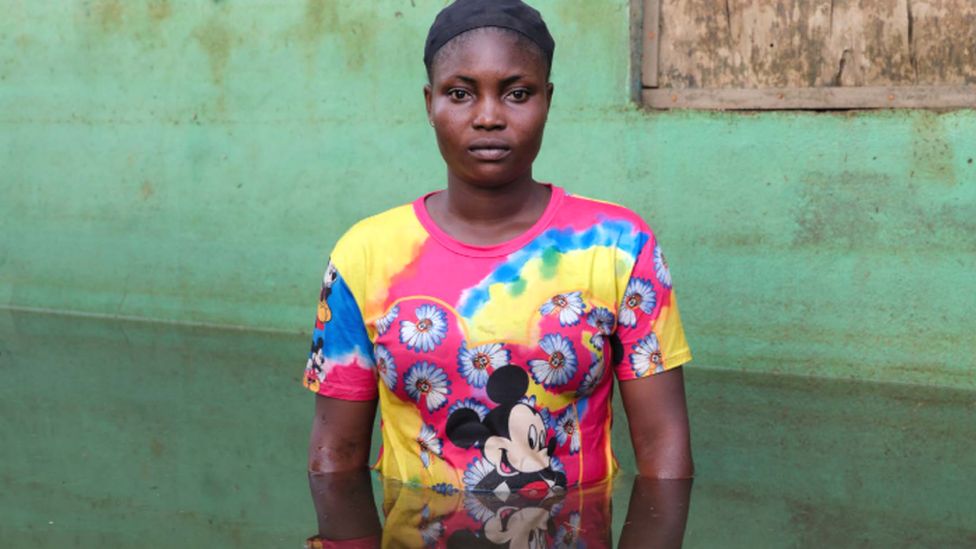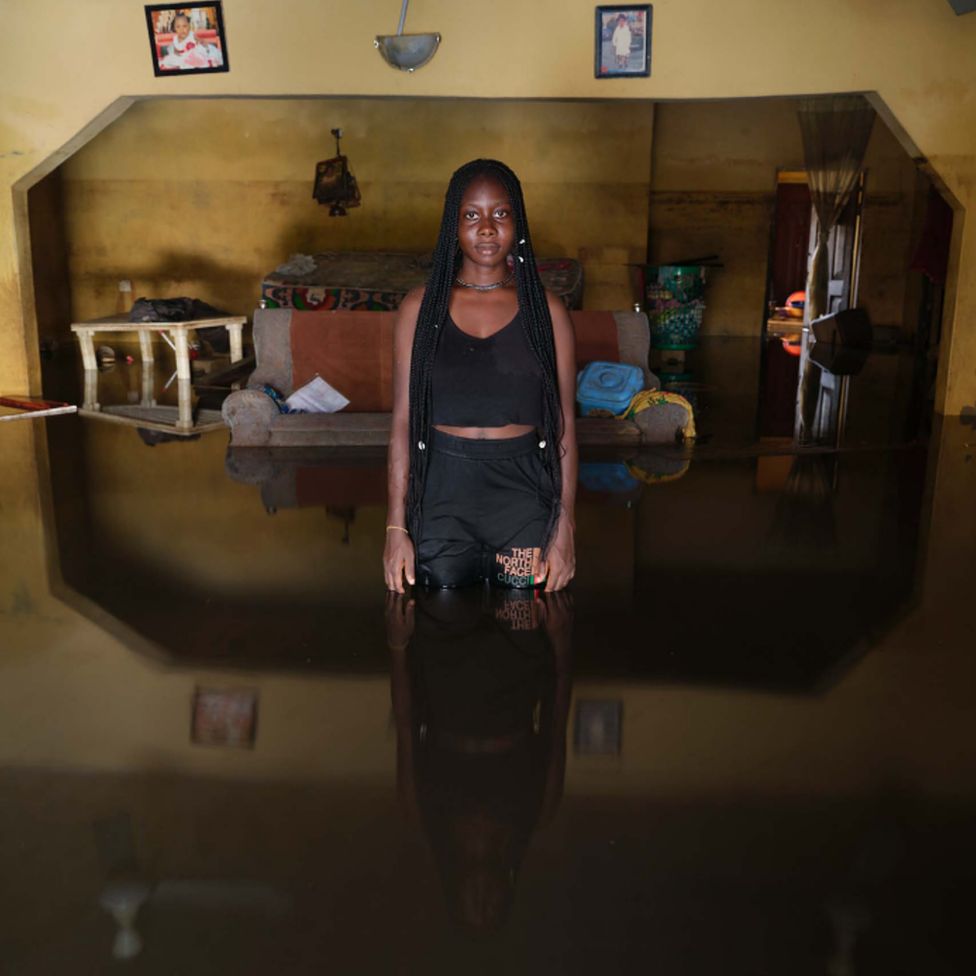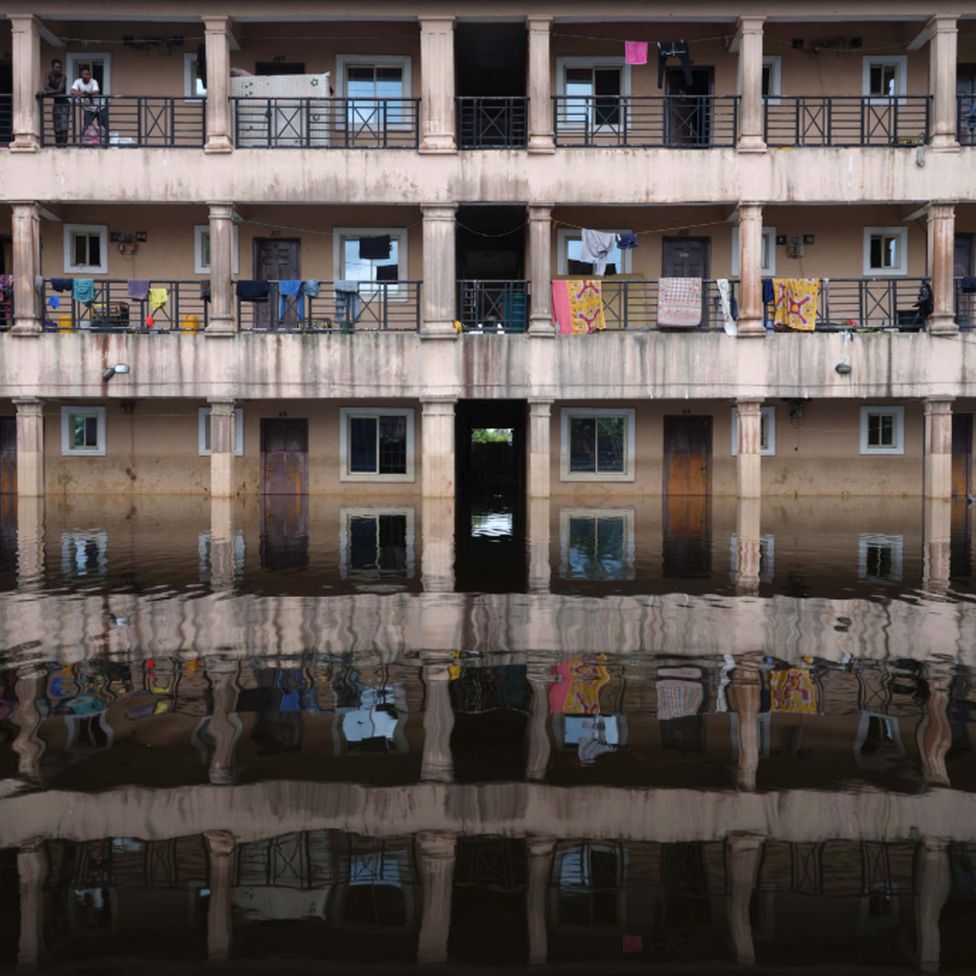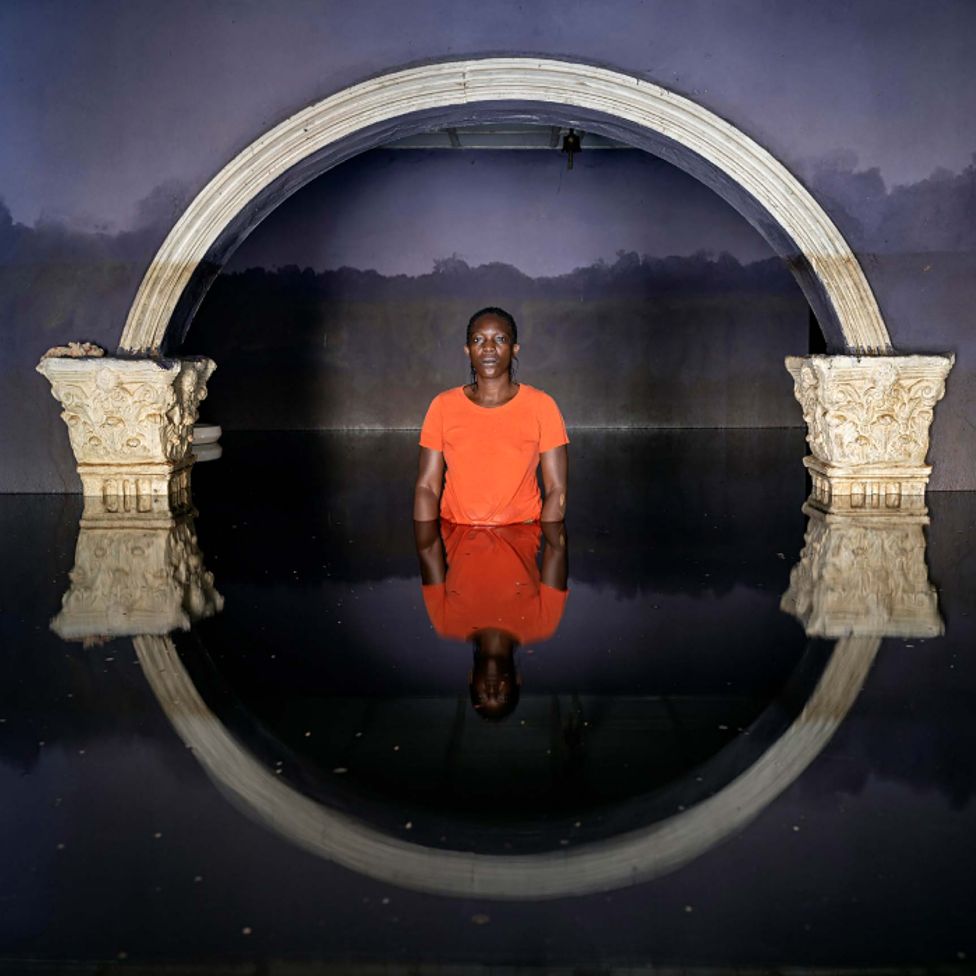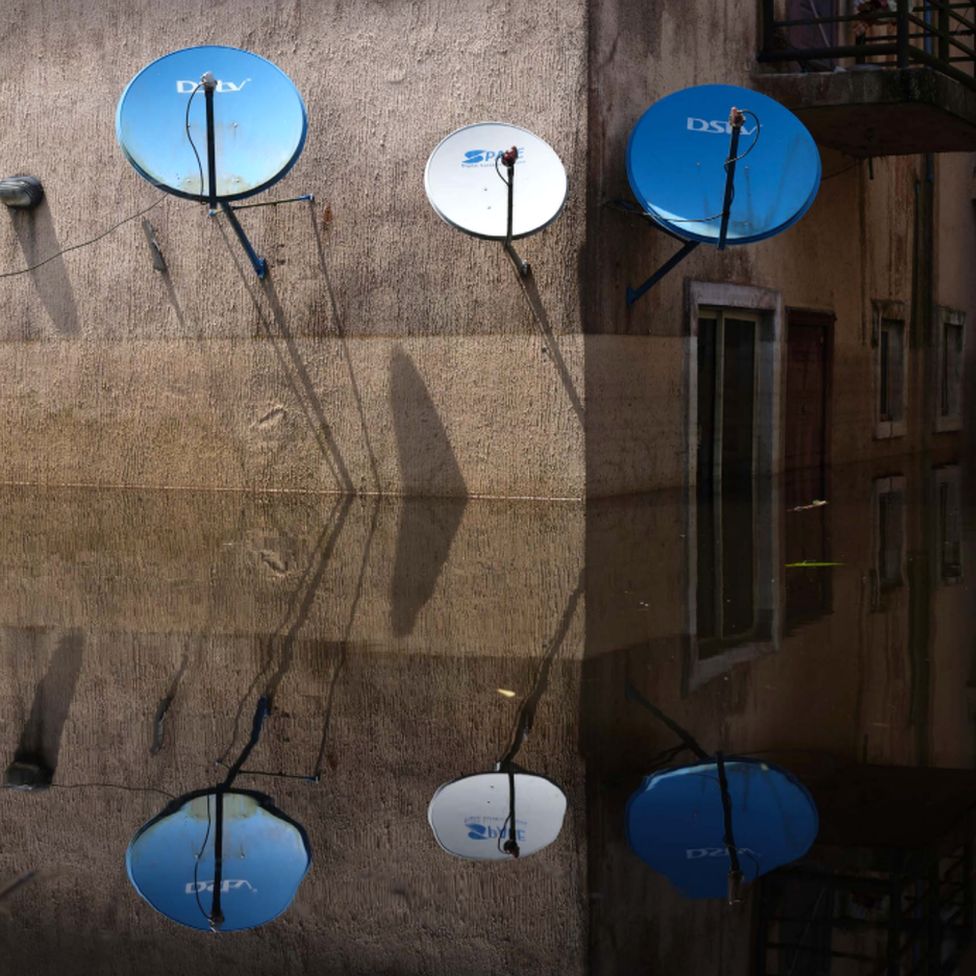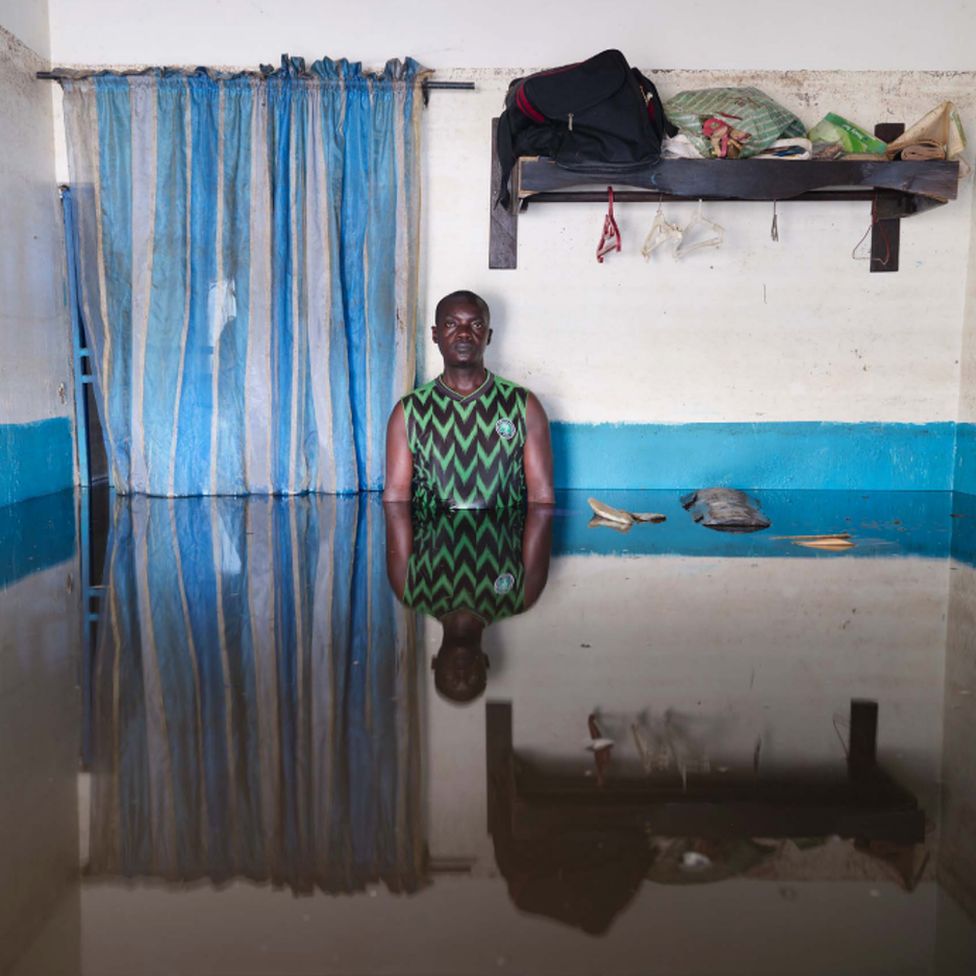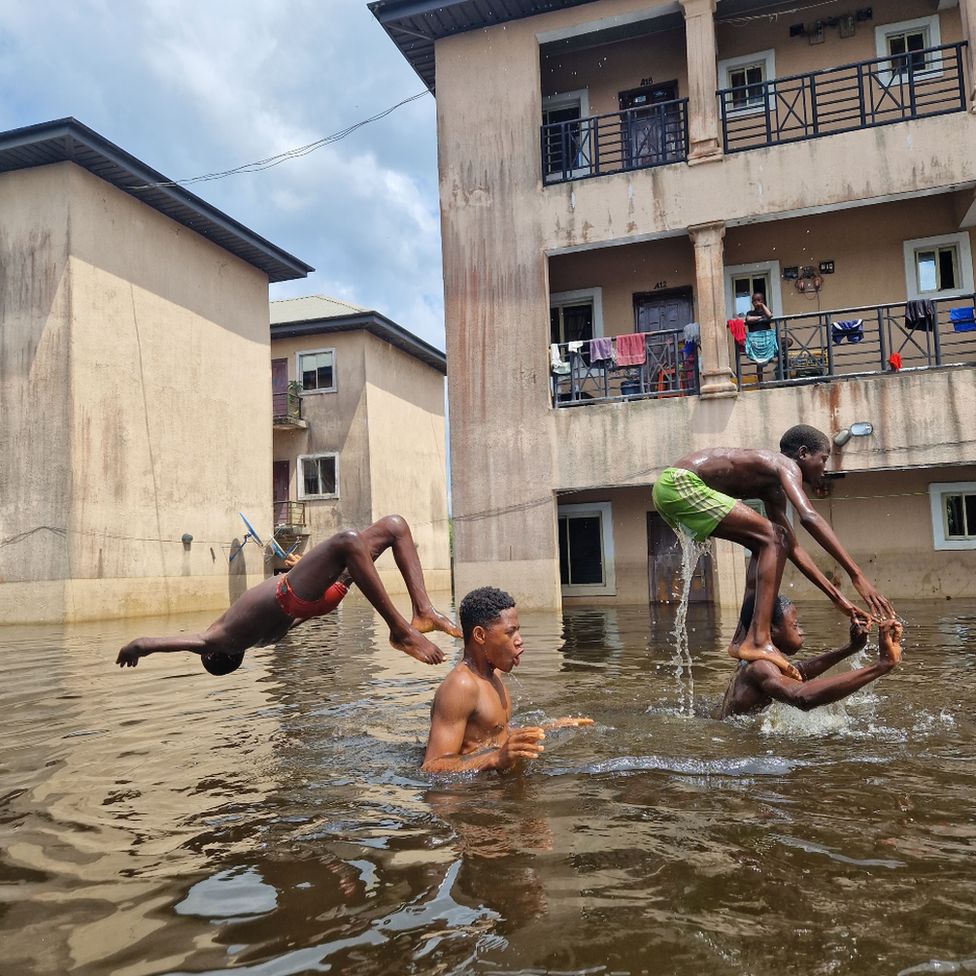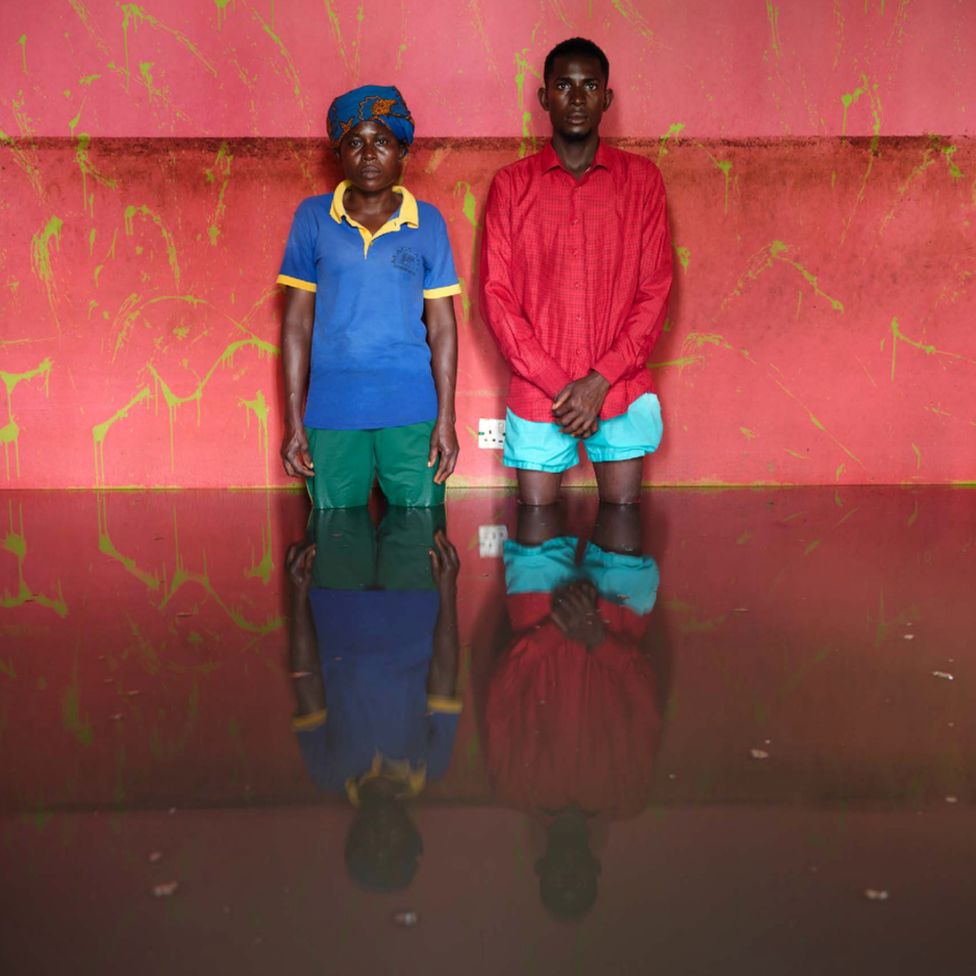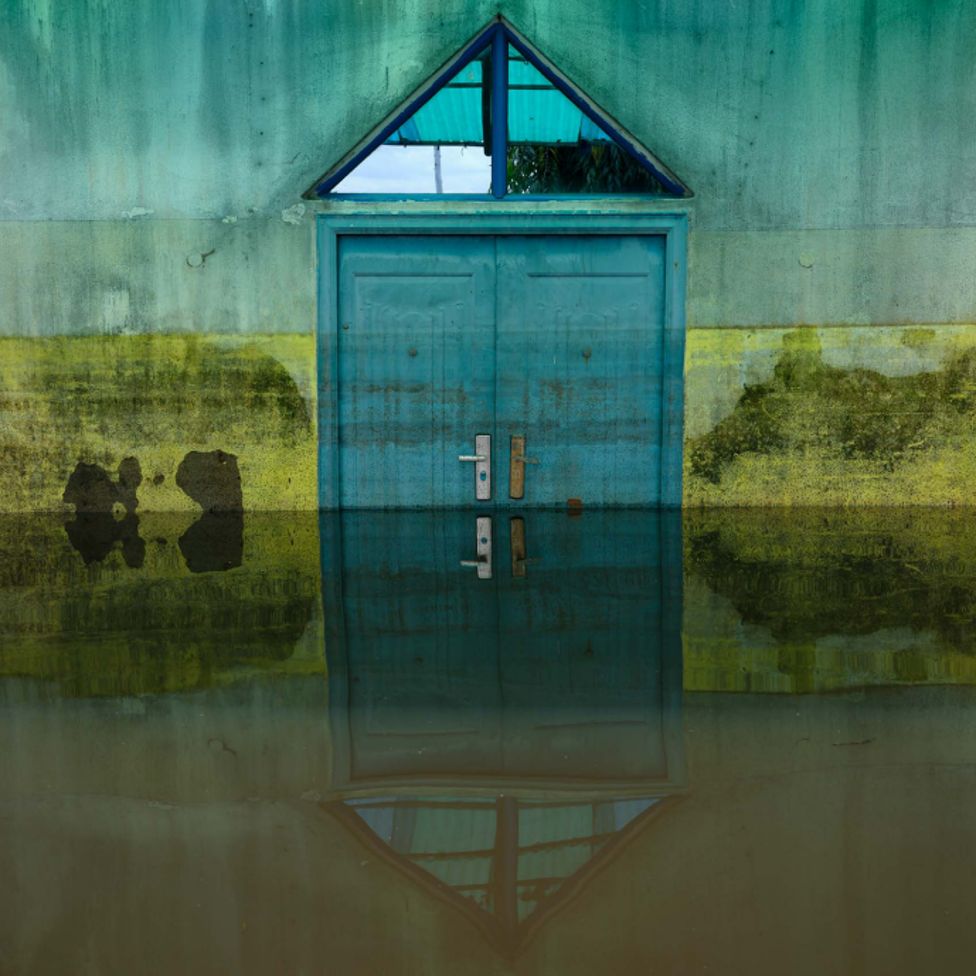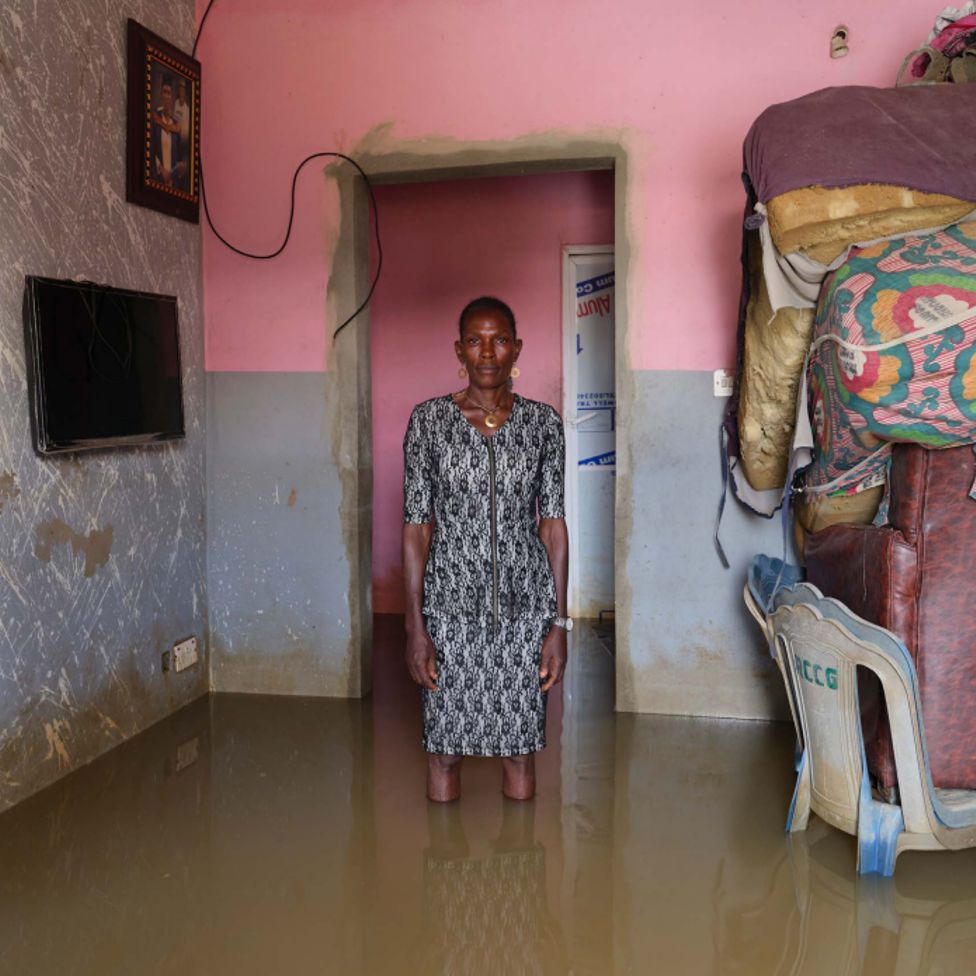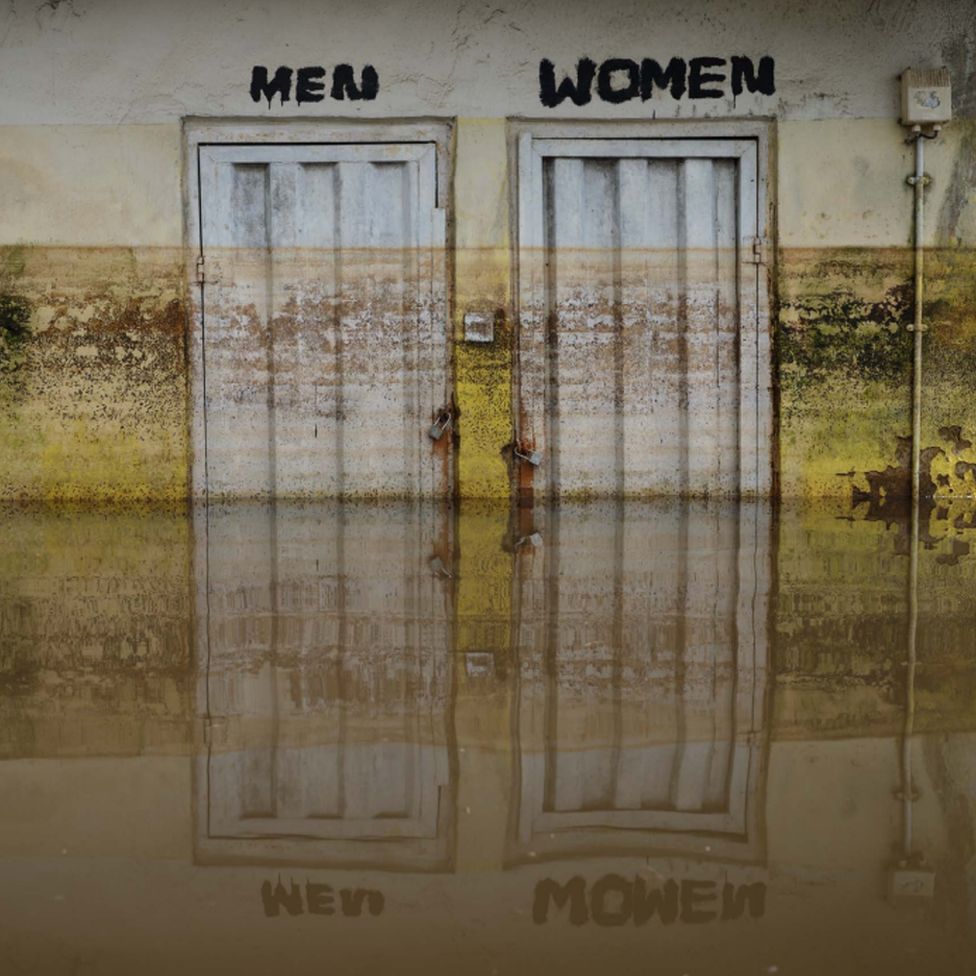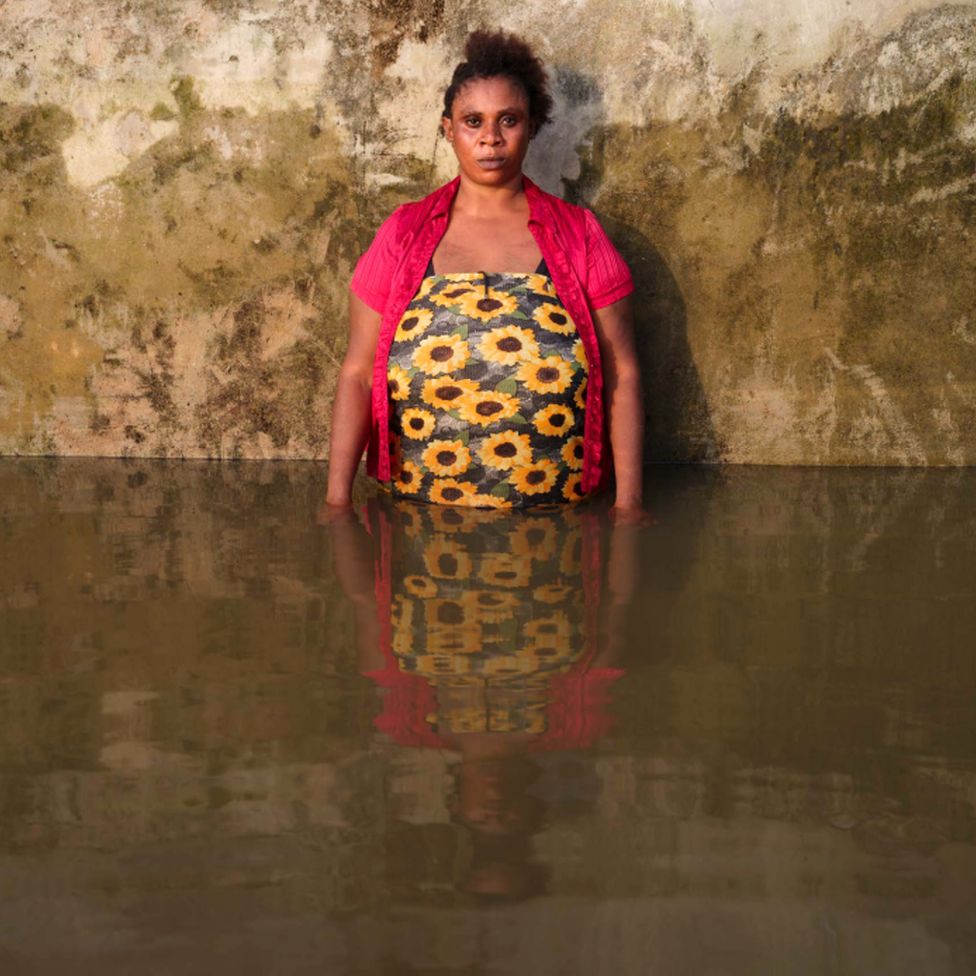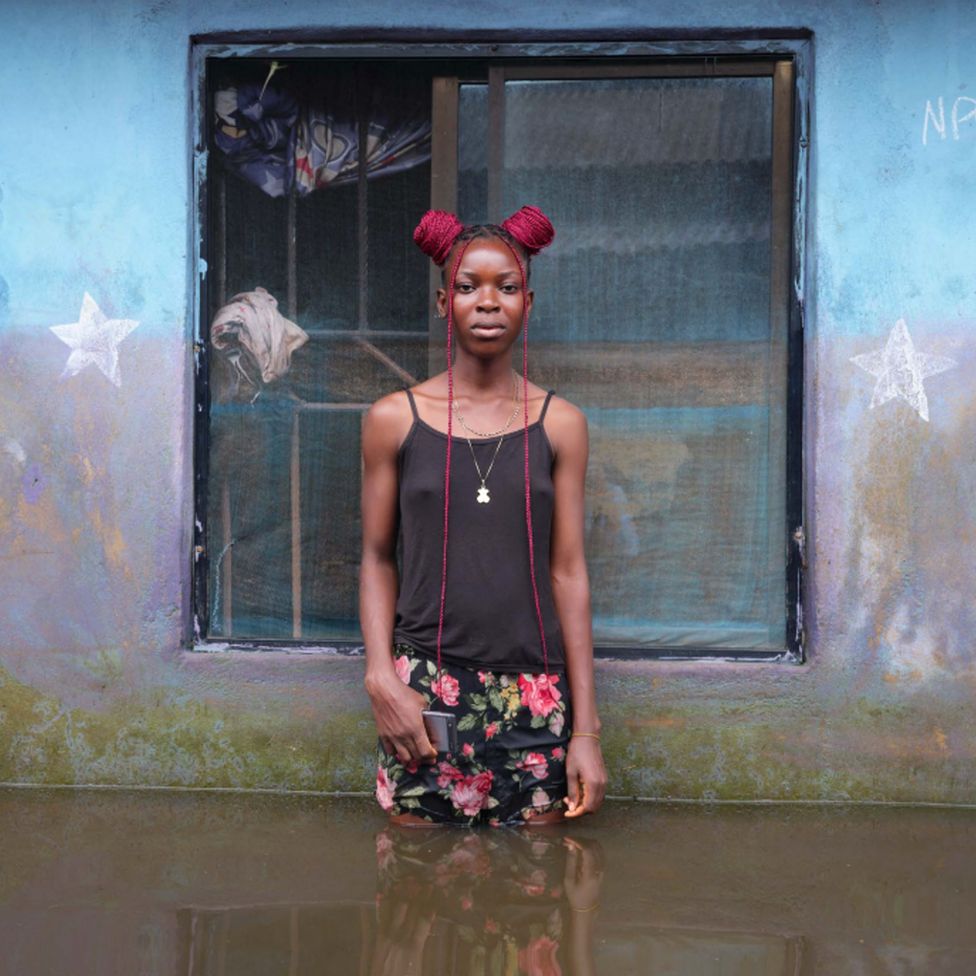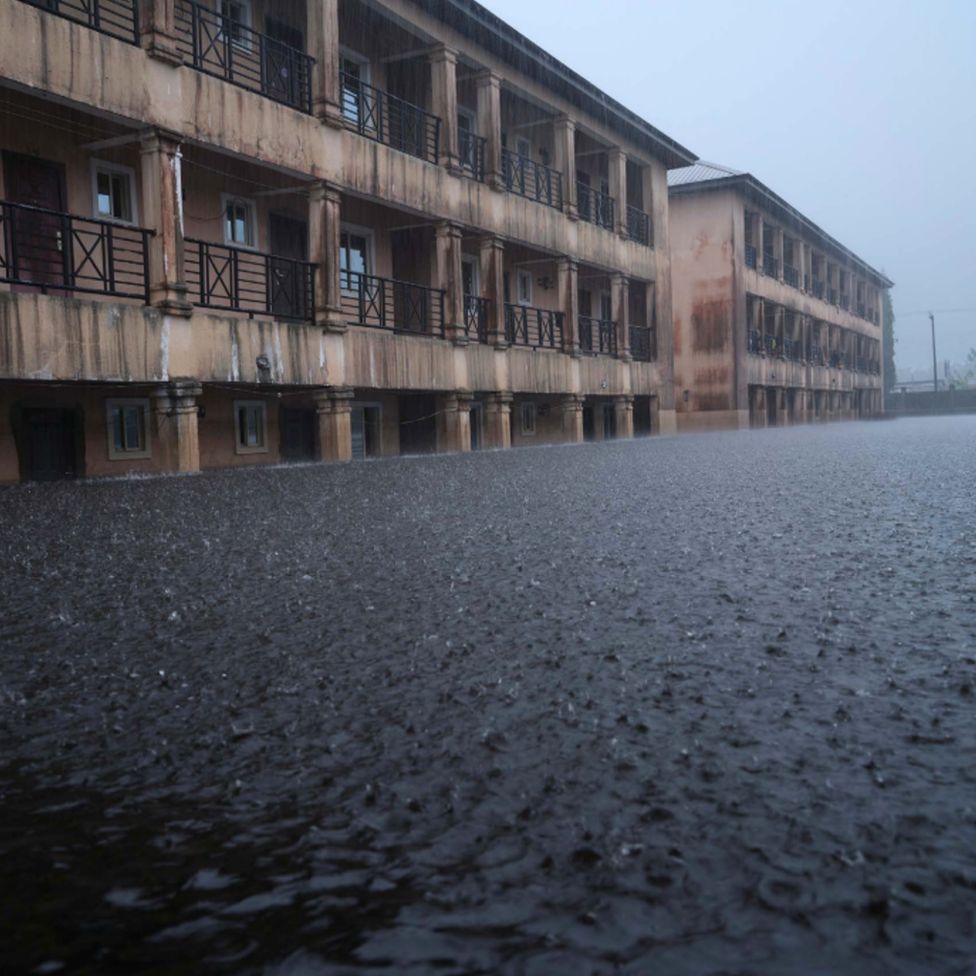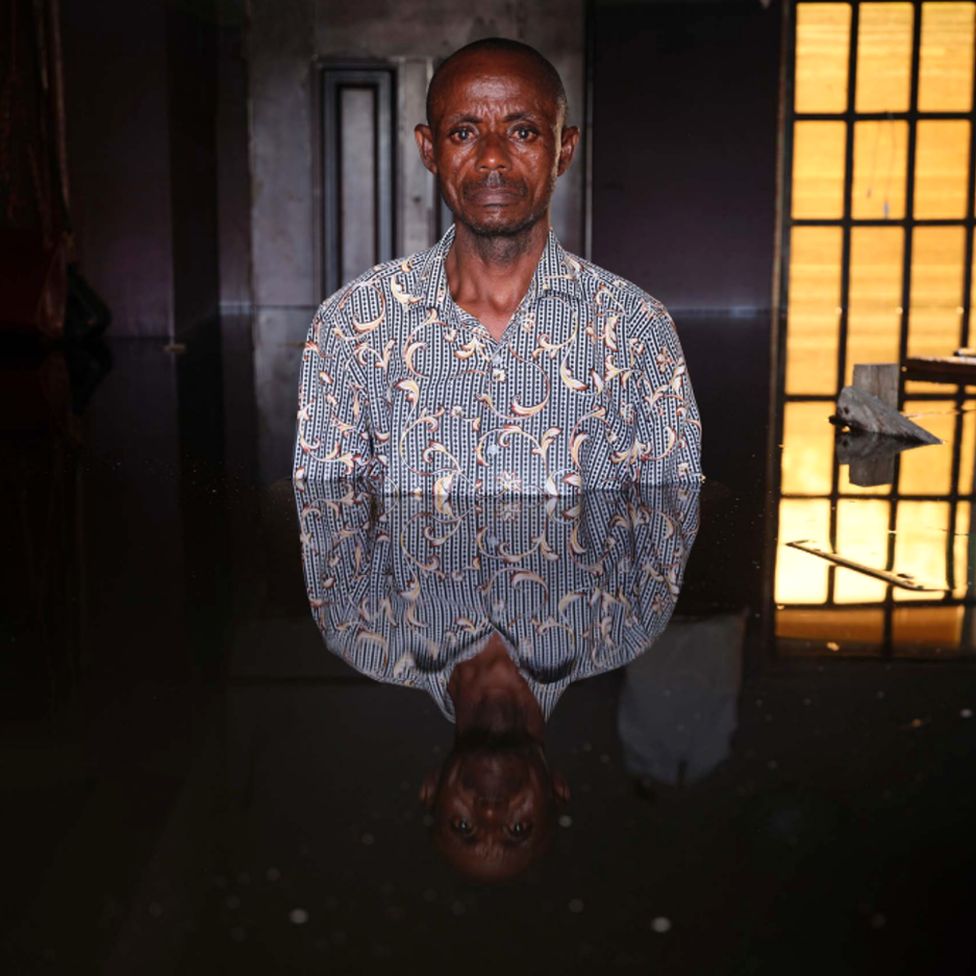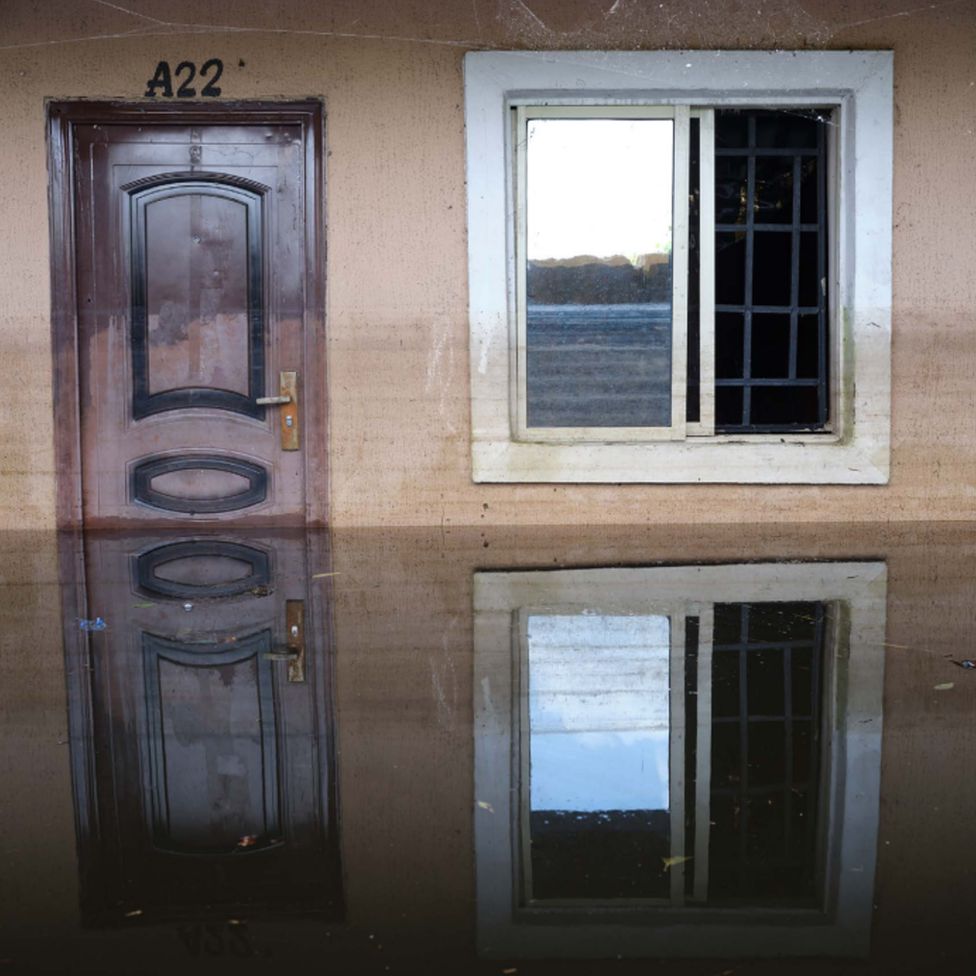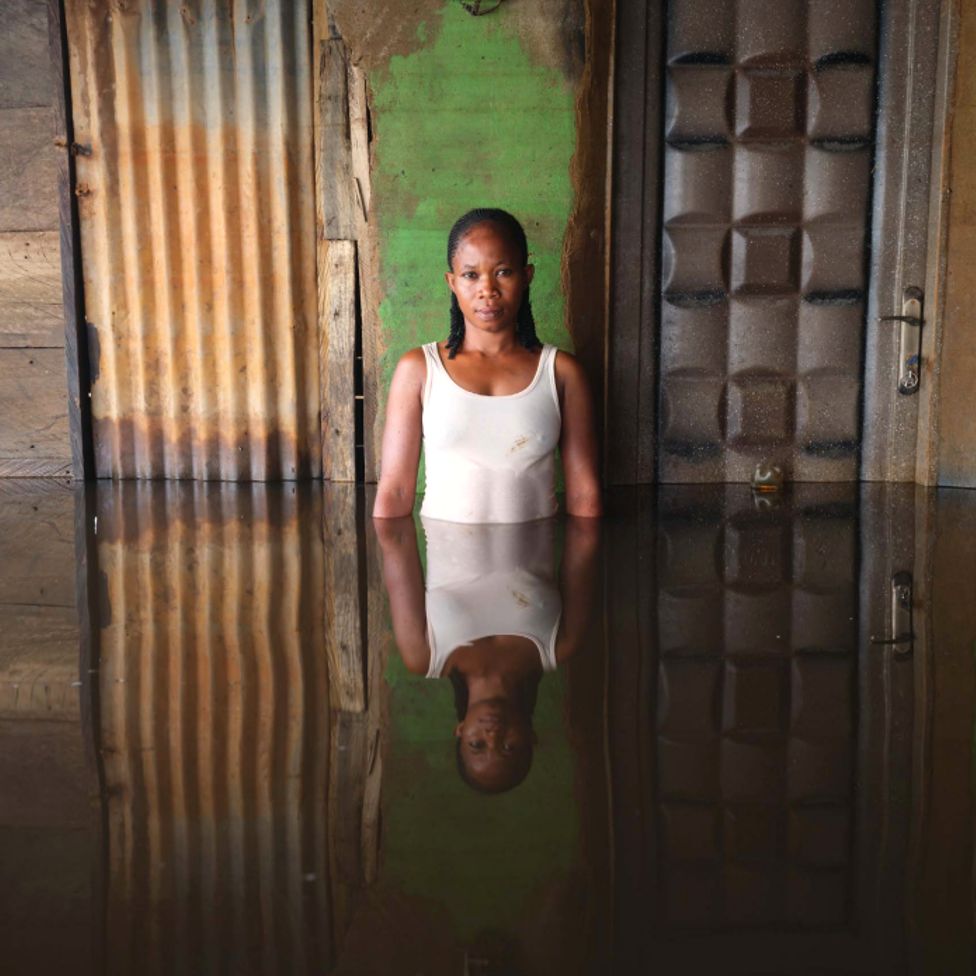BBC
Communities hit by Nigeria's worst recorded floods are at the centre of an exhibition by photographer Gideon Mendel. He took portraits of people standing amid their drowned homes in the southern state of Bayelsa:
In late November last year I travelled to Nigeria, more than a month after the floodwater had arrived and I found many houses were still inundated.
With the water slowly receding, my subjects were able to take me to their homes, often travelling by canoe.
"This is the third time I have experienced a flood, but this is by far the worst," said Gift Ikuru (pictured above) from Ogbia municipality.
"All of my belongings are destroyed. There is no shelter for us, so we have been sleeping on the roadside."
I was repeatedly moved by the welcome I received in this community - from people dealing with such difficult circumstances. So many people wanted to have their experience documented that I often had a queue of people waiting to be photographed.
Shiphrah Timbiri Otuoke breaks into spontaneous song as she stands in front of her flooded home
My subjects embraced this moment of witnessing, facing the camera with such dignity, like Shiphrah Timbiri Otuoke (above).
She broke into spontaneous song as she stood outside her home, expressing sorrow but also a resilience shown by so many in Ogbia where many own small plots of land to grow crops.
"On our farm the water was above our heads so we had to take the risk of diving to harvest our cassava," she said.
"It brought so much destruction and hunger to our community. I am a sociology student and the flood was a disaster to me academically. I lost so many learning hours. My textbooks, handouts and notebooks are all damaged. I don't know where to start from now because I support myself with farming as a student."
The residents living on the lower level of Dorcas Apartments, accommodation for university students, have been all flooded.
"None of us have had any assistance in this terrible situation," said Joy Christian, whose husband is a caretaker of the building.
"We have seen huge rains this year, more than ever, but we know that this flood came from a dam being opened in Cameroon," said Eruabai Ase Otuaba (above).
"We thought the 2012 floods were the worst but the level is much higher this time. There is nowhere to sleep and the water came with sickness. With so many mosquitoes malaria is here.
"I am living with my family on the top level of the incomplete building. We have to use this contaminated water for washing and drinking."
Ms Otuaba said the displaced families had received no help from the government.
"The floodwater destroyed our store of food supplies from our family farm so we have nothing to feed on. The foundation of our house is also damaged. We do not know if it still will be standing after having so much water inside.
"But in our community we support each other. When there is food we share it. I have a degree in business studies, but I am not employed at present. I work on our family farm."
"We were told that a flood is coming but we did not prepare for something of this magnitude, particularly because in this community flooding is rare," said farmer Prince Ogiasa Lume Otuoke (above).
"The flood came suddenly. There was no time for preparation as the water was overflowing with extreme force. I did not have the chance to dive into the water and save my crops.
"Our main crop here is plantain, and for the planting we need the suckers. But they will have all rotted away under the floodwater."
According to the UN's disaster relief agency (Ocha), the flooding in Nigeria affected more than three million people.
More than 600 people lost their lives and another 1.5 million people were forced to flee their homes. It extensively damaged houses, farms and basic infrastructure and decimated livelihoods across the country.
"The damage to staple foods such as cassava, rice, and plantain, among other crops, risks aggravating the already alarming food and nutrition crisis across Nigeria," said Ocha's Matthias Schmale.
"The experience was not easy. We have been moving from one place to another for shelter. We are now living in the upstairs of an incomplete building," said Iruaro Robert Otuaba, a school student (above right).
"We lost our personal belongings but I was most upset to see all my children's schoolbooks in the water," said his mother Edigiraru Donald (above left).
"All the crops from our farm are destroyed. We are seriously suffering now because I can't do any business to survive."
This is the outside of a church in Ogbia, showing how slow it was taking for the waters to recede.
"I remember the flood when 2012 when I was a boy, but that was not nearly as bad as this. Nobody in our community expected it to be this huge," said Mr Otuaba.
For farmer Orubo Oro Tombia (above), from neighbouring Yenagoa municipality, the worst aspect has been the loss of cassava stems: "It is a disaster to me in so many ways and the cause of so much stress.
"The farmland is submerged so all the stems are dead. That means there will be no crop in the coming year."
"We know that many things caused this flood. A dam over the border in Cameroon released water, and our government has failed to prepare for this by building a dam to curtail it," she said.
"I also believe that climate change caused the unusual rains and the overflow of the dam. I have a canoe, so at least I am able to move around and return to my home."
Fidelia Shedrack Igbogene (above), also in Yenagoa, said her family were the only ones left on her street as they had an upper floor: "Where we are here there is no comfort because the building is unfinished. Mosquitos feast on us. The situation is terrible and bad.
"I make a living farming fish and we had two fishponds. They were washed away and I have lost all my fish."
"I am a university student. Many of my academic books are damaged, and how can I study when I am living like this?" said Winner Odums (above) in Ogbia.
"It's hard for my family to survive with food prices so high and all of our farm produce destroyed. With all the water still here it makes life unbearable."
Many people have been struggling to find refuge - this is Dorcas Apartments where only the upper levels were accessible.
"Someone gave us his place to stay but now he has just asked us to leave so we are now staying by the roadside," said Aruaman Ase in Ogbia.
"I work in a student building and most of their belongings under my watch as the apartment caretaker are gone, submerged under floodwaters," said Alawei Christian (above).
"This is my fourth experience of flooding, but it is much worse this time, the biggest of all of them. It has really affected my family. We have lost so much, including 25 chickens."
"There has been some help offered, but not nearly enough," said Mr Christian.
"Imagine a bag of rice and beans for hundreds of people in the community. We received just a single cup measure of rice and beans."
Farmer Janet Eke Otuoke is sleeping at her brother's home in Ogbia: "We are seven people in that small room with our children, living and managing together.
"I also lost all my cassava stems, so for us to plant next year it means we would need to buy them. But each stem goes for more than a 1,000 naira [$2.20, £1.75], which is far beyond our means.
"My appeal to government is that they should help us to continue farming and also help with the properties that have been so damaged."
Interviews by Tife Owalabi and Stanley Boroh.
Gideon Mendel's exhibition Fire / Flood is showing in London at the Soho Photography Quarter, part of The Photographers' Gallery, until May 2023.
Images subject to copyright.
